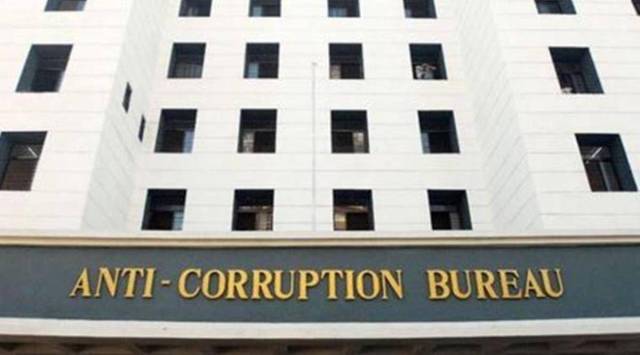Maharashtra education commissioner tells ACB to start ‘open inquiries’ against 40 officials caught taking bribes
The Anti-Corruption Bureau says the lack of designated courts has affected its conviction rate.
 ACB officer said that both bribe takers and bribe-givers were equally responsible for the situation. (File photo)
ACB officer said that both bribe takers and bribe-givers were equally responsible for the situation. (File photo) Maharashtra Education Commissioner Suresh Mandhare said Wednesday that he had instructed the Anti-Corruption Bureau to conduct “open inquiries” against 40 education department officials caught taking bribes in the past two-three years.
“I have instructed the Anti-Corruption Bureau to conduct open inquiries against these 40 officials who were caught red-handed taking bribes. I have sent letters to all superintendents of the Anti-Corruption Bureau across the state to conduct such an inquiry,” Mandhare told The Indian Express.
This is the first such pro-active decision taken by an education commissioner, officials said.
Like the irrigation and public works departments, the education department is notorious for bribery. According to the education commissioner, corruption in the department remains unchecked because of a lack of conviction in bribery cases. “The conviction rate of the ACB is very low. These employees go scot-free because of insufficient evidence against them. After being acquitted, they return to work and continue their ‘activities’ in earnest. If such things continue, how can we ensure clean, transparent and corruption-free governance?” he said.
Mandhare said the ACB could summon people to record their statements against those caught red-handed. Besides, the ACB can seek details about movable and immovable assets of such officials, he added.
“Several education department officials have three or four flats, bungalows, high end cars… Even those who do not have ancestral properties own lots of properties. They have worked in the education department for a long period of time,” an official said.
Asked whether the ACB would start “open inquiries” against education officials caught red-handed, Amol Tambe, ACB superintendent of police (Pune range), said, “After a trap is laid and a government official is caught, along with the investigation in the particular case, we also start an open inquiry. Therefore, we simultaneously conduct open inquiries against such officials. However, we appreciate the pro-active action taken by the education commissioner.”
“Last year, we had a conviction rate of 15 per cent. Earlier, when designated ACB courts were functioning, we used to have a 35 per cent conviction rate. As designated courts do not exist anymore, the cases are distributed among other courts, which already have a heavy pendency of cases. As a result, ACB cases come for hearing only once in a while,” Tambe said.
The ACB officer said that both bribe takers and bribe-givers were equally responsible for the situation. “Sadly, in the education field, those who give bribes to officials are teachers or people who run big educational institutes. Teachers pay bribes for transfers and promotions. Educational institutes pay bribes for getting recognition. We can understand helpless and illiterate people resorting to bribery in an unorganised sector, but why are educated people and those from organised sectors indulging in such acts?” Tambe said.




































